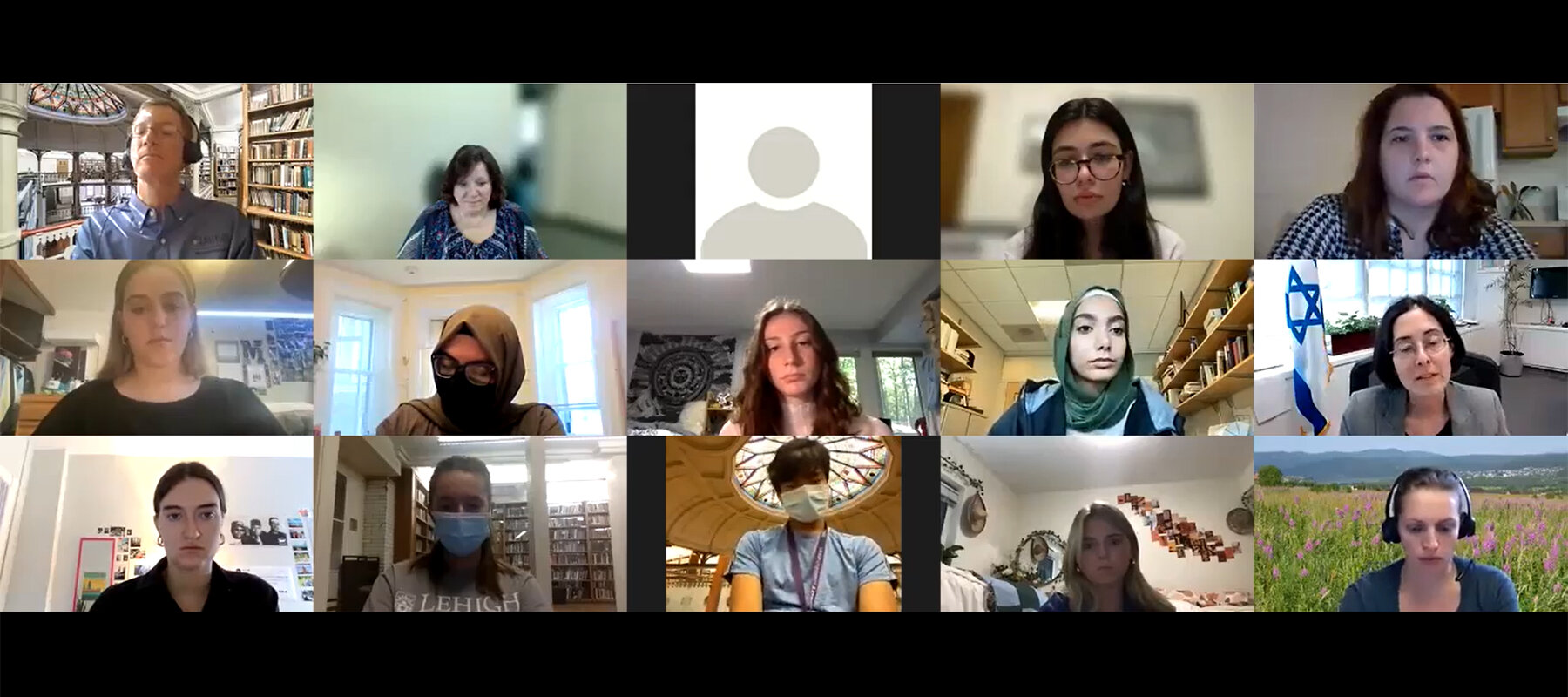Amid strife that’s lasted generations between Israel and Palestine, negotiations between those representing both sides of the conflict seem to be sparse.
While one side or the other gets media coverage based on the situation at hand, rarely are both perspectives heard consecutively.
Seemingly few have been as authentic and comprehensive in their engagement with leaders from both sides as the recent dialogue presented by the Lehigh University-United Nations Partnership (LU/UN).
The LU/UN Partnership created such a space in mid-October for students to engage directly, via Zoom, with the UN Deputy Ambassadors from both Palestine and Israel. This allowed for an open discussion regarding their roles at the UN and the conflict between their peoples.
UN Deputy Ambassador of Palestine, Feda Abdelhady-Nasser, joined for the first half of a three-hour discussion, later followed by UN Deputy Ambassador of Israel, Noa Furman.
While Abdelhady-Nasser focused almost exclusively on the Israeli-Palestinian conflict, Furman spoke more generally on the robust presence of Israel at the UN. However, both were redirected to the details of the conflict by students who were eager to dig to the root of the regional dispute.
Abdelhady-Nasser began by describing the Palestinian experience by using striking language such as “colonization,” “war crimes,” and “apartheid.”
“When I first began my work as a diplomat at the UN, trying to convey the reality of the situation, I would ask audiences and students like yourself: can you imagine life under foreign occupation for 25 years?” Abdelhady-Nasser suggested to those on the call. “I could never have imagined I would be asking these same questions over 29 years later.”
On the other hand, Furman emphasized the importance of maintaining a Jewish homeland. She told attendees the main obstacle to a two-state solution is the Palestinians’ insistence on the claim to return to lands occupied by their ancestors, land which is now part of Israel.
“If all of them decided to move to Israel, then there will be more Palestinians than the Jewish Israelis in Israel,” Furman said, highlighting a term she often referred to as the “right to return.” “That wouldn’t be Israel anymore,” she said.
A theme throughout both substantive discussions was that of US involvement — whether the Biden administration will actively advocate for a two-state solution. Abdelhady-Nasser suggested both the US and UN have been negligent in taking a stronger legal and political stance toward Israel.
“It is painful as a Palestinian and a Palestinian American to come face to face with the fact that the United States has used its power, its influence and billions of dollars to perpetuate the oppression of my people. It is incongruous with what I believe this country can and should be — what it has professed itself to be,” Abdelhady-Nasser said. “Our advocacy is geared toward trying to break through and at least raise awareness, understanding and enough concern among American citizenry to change that.”
For Furman, personal connections drive her tireless commitment to promoting peace in the region. “I have to go back to Israel [following my ambassadorship]—I have to raise my kids in Israel,” Furman said. “Believe me, I want peace and stability for our region more than anyone who lives in the US because, for me, it’s a matter of life or death.”
